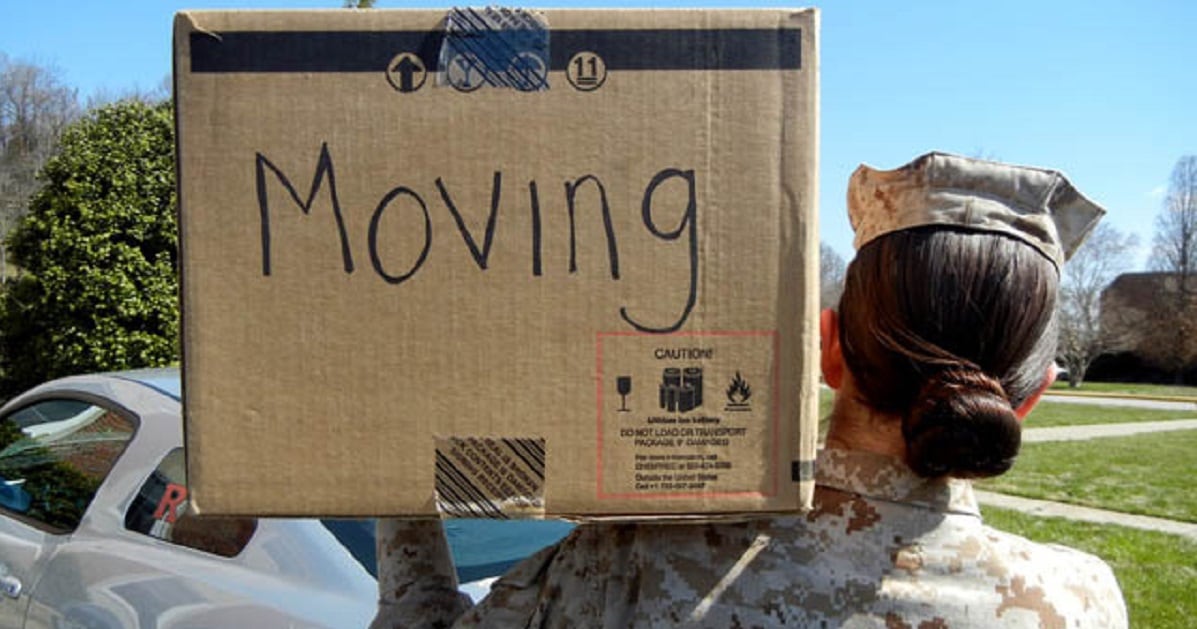Military families on the move this summer are experiencing hardships because of unexpected delays in pickups or delivery of their household goods, and the situation isn’t likely to improve, officials said.
About 1 in 10 military members who have moved so far this year have experienced delivery delays, according to Army Maj. Nichole Downs, a spokeswoman for U.S. Transportation Command. Officials expect delays to continue, she said.
Those families should reach out to their personal property office to learn about their options, Downs said — including reimbursement for expenses caused by the delays.
“There just aren’t enough transportation providers,” said Kelly Hruska, government relations director for the National Military Family Association. Her group first heard complaints from families in Fort Bragg, North Carolina, she said.
“We’ve had complaints from people that they’re shocked at how long it’s taking to get their household goods picked up, and we’re hearing lots of complaints about packers, because they’re not able to find people to do the packing, so that’s raising a whole host of issues,” Hruska said.
The problem isn’t limited to one company or one area. Rather, it’s a convergence of problems that’s created a “perfect storm” for military moves, predicted earlier this year by those in the moving industry. Among the issues:
- High move volume in some high-population regions (Northeast, southern Florida) that exceeds local capacity, along with traditional stress on moving companies in areas with smaller populations but high levels of summer military moves. The rate of military moves jumps from 6,000 per week most of the year to 12,000 per week in June and July, said John Becker, vice president of military policy for the American Moving and Storage Association.
- Shortages of truck drivers (50,000 needed nationwide), packers and loaders, made worse by falling unemployment rates that allow some in the trade to accept positions in other industries.
- New rules that limit the time truckers can spend behind the wheel. This can be of particular concern to those moving military families, where wait time to access an installation counts against the time allowed on the road.
RELATED
Along with these factors is a larger communication problem, Hruska said.
“There needs to be more communication with families about what to expect," she said. "I’d rather be prepared for the worst-case scenario and then be pleasantly surprised by the opposite. If you know there’s a shortage of drivers, a shortage of packers, tell us. Explain the problems and tell us what to do to protect ourselves. We prefer they be up front.”
One soldier’s long wait
Army Staff Sgt. Marvin Washington and his family felt the brunt of it as they moved from Fort Stewart, Georgia, to Fort Bliss, Texas, this summer. Washington told Action News Jax in Jacksonville, Florida, that he and his wife expected their household goods would be delivered to the area a little more than three weeks after they were picked up in Georgia on June 4.
Instead, more than a week after the expected June 29 delivery date, they had not received their delivery from Jacksonville-based Suddath Relocation Services. Their living room was furnished with two beach chairs, and they sent their three children to live with their grandmother, because there were no beds for them.
“I’ve been through my ups and downs in this uniform. And they’ve felt it, too. But when they feel it, then it hurts me. And I can’t stand that,” Washington told Action News Jax.
The Washingtons received their household goods July 12, according to TRANSCOM’s Downs. That’s 13 days after the required delivery date.
It’s not clear whether the Washingtons filed an inconvenience claim for reimbursement of out-of-pocket expenses incurred as a result of the delay in delivery. But certain expenses can be reimbursed, such as lodging, meals, laundry service, rental furniture and purchases of items such as paper plates, napkins, and plastic cutlery, to name a few.
Suddath offered the Washingtons information about filing an inconvenience claim, Downs said, detailing the types of expenses they would reimburse.
Local personal property offices always look into complaints brought by dissatisfied service members, Downs said, but Washington didn’t contact that office.
‘We need action’
“We don’t want any move to not go well. We expect a high level of service from all our service providers,” said Scott Kelly, president of Suddath Government Services. “It bothers me personally when things don’t go well, and it bothers my team. …
“It’s such a quality-of-life issue for these people. We’re proud to serve that market. But industry has to have some help now. We need some flexibility, we need deregulation in the business rules. Give us a chance to provide the type of service that they deserve," Kelly said.
RELATED

Among his solutions: Replacing a required delivery date with a “delivery spread” common to private-sector moves; allow for extended transit times to account for the limits on truckers' time on the road as well as the widespread shortages; and get more information on possible delays to service members, who used to deal with in-person moving experts at their installation but now put much of their move together online.
“We need action, or this will get worse, in my view," said Kelly, who added that companies are getting paid more for private-sector moves than for military ones. Meanwhile, everyone is competing for those trucks and and packers.
“We’ve done everything we can afford to do to fill the gaps that are missing with communication, and transportation and service delivery,” he said. "It’s getting more and more expensive to do this every day to the point where people are leaving this segment of the market. That’s not good for anyone, especially the service member.”
Kelly said areas they’re seeing where capacity is very limited this summer include Alabama, Louisiana, Arkansas, Mississippi, New York, the area around Virginia’s Fort Belvoir, and South Carolina. And this year, they’re seeing rare capacity problems out West, from San Diego to the San Francisco Bay Area to Seattle.
Karen has covered military families, quality of life and consumer issues for Military Times for more than 30 years, and is co-author of a chapter on media coverage of military families in the book "A Battle Plan for Supporting Military Families." She previously worked for newspapers in Guam, Norfolk, Jacksonville, Fla., and Athens, Ga.




